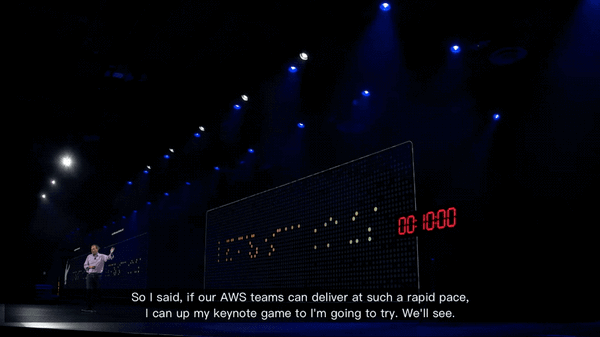65-year-old Turing Award Winner Finally Stops Reporting to 28-year-old Dropout — How Zuckerberg Drove Him Away

The Stubborn Old Man Standing Against the LLM Tide — Might Be Leaving Meta
In Silicon Valley, high-profile executives leaving to start their own companies is commonplace.
But if Yann LeCun leaves, it’s different — he’s a heavyweight who can make Mark Zuckerberg personally come knocking.
LeCun is:
- One of the three giants of deep learning
- A Turing Award laureate
- The founding father of Meta AI Research
His departure would carry serious weight.
For years, LeCun’s stance has been contrarian: standing firmly against the world’s hottest LLM trend, holding a metaphorical sign reading — “You’re on the wrong track.”

Now, the Financial Times reports he may be preparing a startup and talking with investors.
At present, it’s rumor — claiming LeCun has resigned would be premature.
Nevertheless, his silence amid the media storm speaks volumes.
---
12 Years of Meta and LeCun — From Courting Talent to Possible Separation
Zuckerberg’s 2013 Gamble
The relationship began in 2013, during the deep learning boom.
2012: Geoffrey Hinton, Alex Krizhevsky, and Ilya Sutskever submitted AlexNet to ILSVRC-2012, hitting a top-5 error rate of ~15.3%.
Suddenly — neural networks were taken seriously.
The Talent Wars
- Google: Acquired Hinton’s DNNresearch
- Microsoft Research: Rapid AI expansion
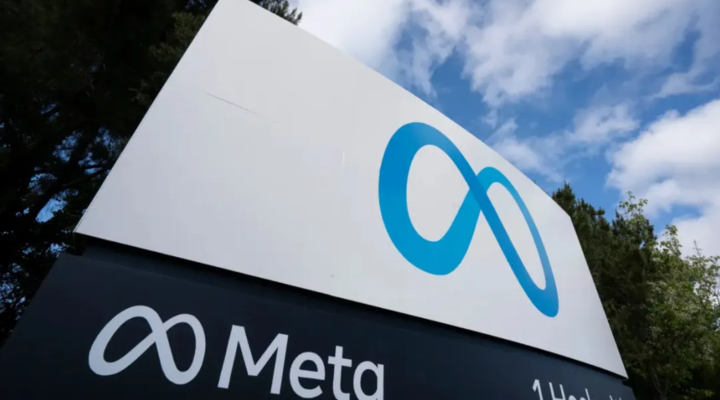
Facebook — transitioning from PC to mobile internet — needed AI for:
- News feed ranking
- Photo recognition
- Content moderation
But FB’s AI fell behind competitors. Zuckerberg needed academic gravitas to attract top talent.
Enter Yann LeCun
At NYU for over a decade, LeCun had a long history:
- 1989 at Bell Labs: Developed CNN for handwritten digit recognition — later a cornerstone of computer vision.
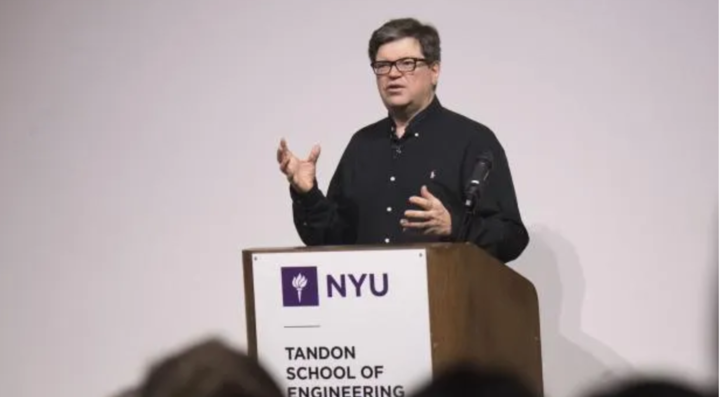
For years, deep learning was unfashionable. Only after 2012’s ImageNet win, LeCun was vindicated.
---
Zuckerberg’s Offer
- Max funding with resource freedom
- Academic freedom — keep NYU role
- Full authority to build the Facebook AI Research (FAIR) lab
By late 2013, LeCun was officially Head of FAIR, with offices in:
- New York
- Menlo Park
- London
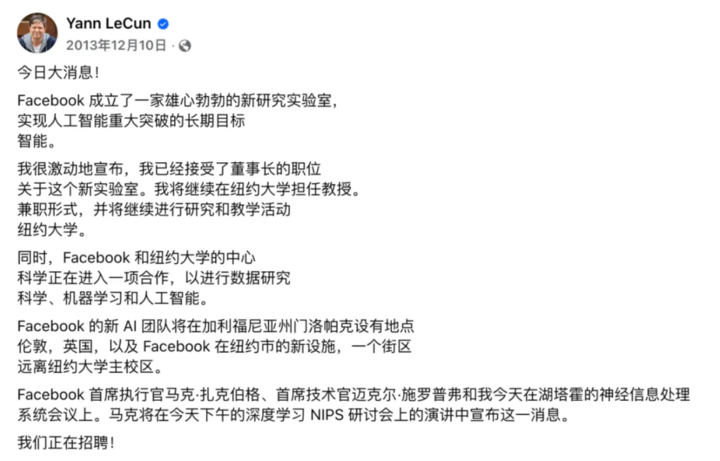
Initial focus:
- Recruiting from top universities
- Embedding deep learning into Facebook products
- Advancing academic research
- Training new AI talent
Key Early Wins
- DeepFace (2014): 97.35% facial recognition accuracy
- Feed algorithms optimized via deep learning — improved ad CTR
---
FAIR’s Academic Footprint
- Published papers at top conferences
- Organized workshops
- Supervised PhD students
- Turing Award (with Hinton & Bengio) cemented his status

PyTorch Born at FAIR
- Led by Soumith Chintala, open-sourced in 2017
- Features: Dynamic computation graph, Python-native, easy debugging
- Quickly became a global AI research staple
Soumith himself just left Meta: “I don’t want to spend my whole life working on PyTorch.”
---
Philosophical Clash: Cat vs ChatGPT
At ChatGPT’s global surge onset, LeCun and Zuckerberg enjoyed a short “honeymoon.”
2023 saw Meta open-source the LLaMA model series.
- Competitors went closed-source
- Meta’s aim: Make LLaMA the “Android” of AI
LeCun supported open source — but remained skeptical about LLMs.

Why LLMs Are “A Dead End” in LeCun’s View
- LLMs predict next words based on statistical correlation — not understanding
- Susceptible to “hallucinations”
- Lack persistent memory systems of animals
- Cannot plan complex sequences
> “Your cat has a better world model than any AI system today.”

A 4-year-old absorbs \(10^{15}\) bytes visually — gaining basic physical and linguistic intuition.
LLMs, even after “reading the internet,” still lack such grounding.
---
His Roadmap — World Models & JEPA
Core idea:
Let AI learn by observing the world, not just memorizing text.
Modules:
- Perception
- World model
- Memory
- Action
JEPA Approach
- Self-supervised learning
- Predict abstract features from related inputs (e.g., sequential video frames)
- Focus on key factors, not exhaustive detail generation
Predicted: If successful, could surpass LLM methods in 3–5 years.
The challenge — can Meta wait that long?
---
Meta’s Restructuring — End of FAIR’s Autonomy
Initial promise:
FAIR conducted long-term, fundamental AI research.
Now:
Generative AI race forces short-term deliverables.
Structural Changes
- Formation of Super Intelligence Lab
- FAIR merged with foundational and applied AI teams
- Research must align directly with product goals
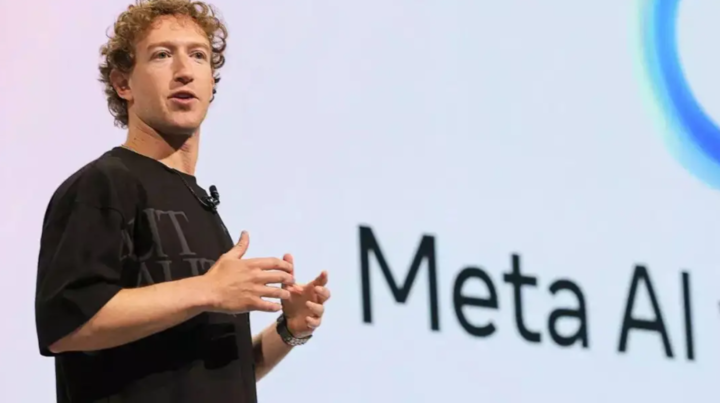
Publication freedom curtailed — now requires cross-team and management approval.
LeCun reportedly considered resigning over the new policy.
---
Leadership Shifts
- Alexandr Wang appointed Chief AI Officer — reports to Zuckerberg
- LeCun now reports to Wang
- Shengjia Zhao named Chief AI Scientist of the lab
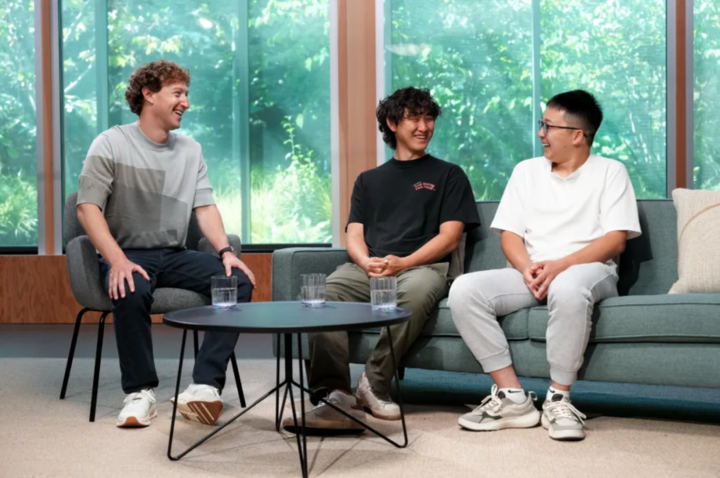
Inside Meta — it’s known LeCun disagrees with new direction.
The final push: Layoffs affecting both FAIR and product AI teams, including Yuandong Tian.
---
Conclusion — What’s Next?
Meta is moving away from fundamental research without short-term returns.

FAIR’s golden era has closed.
If LeCun leaves:
- He’ll regain freedom to pursue his world model vision
- No corporate reporting lines
- Can prove (or disprove) his “LLMs are a dead end” claim

For Meta:
- Needs practical generative AI across all products
- Fewer dissenting voices internally
One day — if LLMs stall — people may recall the stubborn old man who stood in protest.
---
Key takeaway:
LeCun’s voice — like many contrarians in tech — keeps the field from narrowing to short-term corporate goals.
For independent researchers and creators, open-source platforms like AiToEarn官网 and AiToEarn开源地址 offer tools to generate, publish, and monetize AI content globally — enabling bold visions without corporate constraints.


